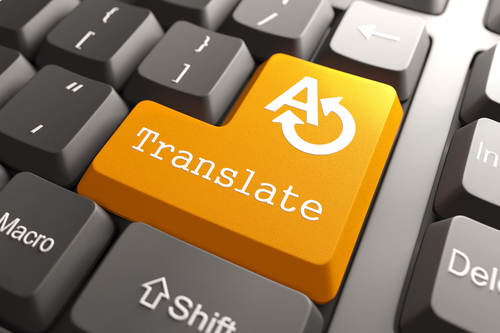“A different language is a different vision of life” -Federico Fellini
While Fellini may not himself have generalized his quote, especially in scientific domains, many professional scientists face barriers when it comes to communicating their ideas to their peers. This is because, once a research is published, the work is displayed on a global level. Unlike 19th century, when most interactions were domestic, scientists have to communicate and express their ideas to a much wider audience. In turn, English has become the standard mode of communication. It is easier for scientists with English-speaking backgrounds to communicate as compared to scientist from non-english speaking countries. Scientists who hail from countries that do not have English as the native language are bound to learn and express themselves in a language that is foreign to them. They have to explain the significance and subtleties of their research/project in a foreign tongue.
With your research and other texts available online, even a preposition used in a wrong context can push your research paper towards ambiguity. You have to be very particular about the choices you make while using appropriate verb, adverb and adjectives or else it might degrade your deductions, etc. The impact of your research is also diminished, if you do not have an impeccable English. The probability of research papers with grammatical errors being published by top publication is very less. Having a communication gap, especially in terms of multi-lingua shifts, is bad not only for hard working scientists but also for science as a whole.
In order to overcome this communication gap, there is an immediate need for trained personnels who can address the issues right from the scratch. They need to be able enough, to translate the research without changing the sense. The areas that need immediate redressals to this translation problem include astronomy, mathematical studies,agronomical sciences and environmental science. At times, these disciplines of science deal with localized geographical region at once but the research’s findings are of global importance. So, making the research available in multilingual format will enhance the overall impact.
In contrast, valuable research funds are wasted on private translation service providers that have little expertise in translating technical contents. It contains technical language and scientific notations that, if manipulated, can make the entire paper a caricature
According to a recently published journal Ambio: A Journal of the Human Environment, the author suggested a viable solution to the translation issue. Professional translators with science background need to be hired by the university just like technical specialist and statisticians. Until the hiring starts, bilingual researchers or research scholars can consider assisting colleagues with translation in return for a small fee for their time and effort.
Ironically in English speaking nations, the role of translators is highly undermined. If you need to increase the citation of your research paper, it should be published in all major languages of the World like Mandarin, French, Spanish alongside English. On topics related to environmental science, agronomy and biological sciences, about 1/5th of total papers is published in just the languages mentioned above. The translation of research work into other languages allows more data on the similar paper from around the globe which can either prove or dismiss any hypothesis put forward.
Even if translating the entire paper is difficult, an abstract can be published alongside the original paper for scholars to get an idea on the already researched model. With the rapid advancement in technology, the day crawls near when you will be able to translate scientific documents using your computer in the comfort of your home/lab. Until then, scientists need to take help as per requirements when it comes to editing and translating their life’s work.
To know more about translation visit : The Spanish Group
